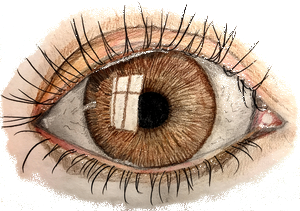Leila Chapter 26

‘You know I was a teacher once? Did I tell you that? I taught maths and a few other subjects as well. To kids about your age. I used to love it, but it became tiring, and I felt I was running out of inspiration. To inspire children like you required loads of ideas, lots of experience, piles of energy. I kind of ran out.’
‘I’d have liked you as a teacher,’ she smiled, as she thought back to some of the teachers she'd suffered in the past, ‘you’d have been kind to me, and cool. You understand me.’
She stressed the word understand and inclined her head slightly as she said it. If she'd been any closer to him her head would've drooped onto his shoulder. Instead she jerked herself upright, almost as if she had fallen briefly asleep. His gentle voice woke her.
‘Thank you, Leila. That means a lot. For me it went like this.’
She could tell a story was coming. She settled on to her log-stool, and leaned back against the dusty timber sheeting that made a rudimentary wall behind her.
‘When I started training, I was told it was all very straightforward! And I believed them. Everything was simple. Children sat in rows, their eyes fixed on the teacher or the whiteboard. In my day it was a blackboard, with chalk! They all listened to what the teacher was saying, and they all did as they were told.’
Leila smiled. That didn’t sound like her classroom.
‘And in my day, if that didn’t happen, there would be trouble. And it would usually hurt.’
‘Hurt?’
‘Yes. In those days teachers could hit and hurt children. And they did it, quite regularly. And often the most troubled children got hurt the most.’
Leila had read and heard that this used to happen, but it was unsettling hearing it from someone who might have been through it. She shuddered slightly at the thought of any stranger hitting her, even though her Dad sometimes had. When he lost control. Or when something else was bothering him.
‘Because of that, when I started I had expectations of how the young people would behave in class, and how the class would be organised. But after a few weeks in the classroom, I realised it wasn’t like that any more. When I was your age, the running of schools seemed to be based on a series of threats. The threat of being hurt hung over you like a dark and ever-present cloud. You spent your childhood in fear of authority. School was scary.’
His face painted a picture of worry, as if he were looking down on himself as a youngster. The lines around the eyes seemed deeper, the furrows in the brow were more pronounced, and the mouth was downturned.
‘It was difficult to learn like that. Children are children, they get things wrong all the time. That is the whole process of learning. Taking risks and making mistakes is part of becoming properly educated. It should be celebrated not punished.’
‘What? You’re saying I should celebrate all my mistakes?’
‘Yes!’ He almost shouted it. ‘Making mistakes is all part of growing up! Look at me! I am still learning. I make mistakes all the time, but I try to learn from them each time too. Life’s for learning. If you’re not learning, you’re not living!’
She couldn’t really figure out what he was saying. He continued.
‘So when I started I had the kids in rows and I yelled at them if they talked and made them face the front if they turned round.’
‘I can’t imagine you yelling at anyone,’ she said quietly. His response was equally quiet.
‘Within a few weeks I realised it didn’t work. They looked worried all the time! We turned the room round, so children could still see me, but could see each other too, and not just their classmates’ backs. We encouraged them to talk to each other. Not all the time, but we started to let them chat about their weekends, their football matches, their families. And we found, surprise surprise, that when we wanted them to focus and learn, they did. Much better.’
Leila tried to imagine a world where adults would leave her free to talk about her painting and her craft work and her gymnastics with her friends. Again she would have liked to have him as her teacher.
‘When I met young people like you Leila, I had to work a bit harder. And I don’t mean on maths and literacy, even though I know you know that that is important. Oh wow, listen to me! I’ve gone on long enough! You get the idea?’
‘What do you mean when you say people like me?’
He smiled.
‘Special people Leila. Every child is special of course, but when I look at you, and everything I know about you, I know that you deserve special attention and special treatment, especially if you are struggling.’
He could say this without sounding condescending or odd. She knew what he meant. She knew herself that she struggled through life. She knew that made her special. She also knew that most adults found treating her as some kind of special case almost impossible. She wished again that he could have been her teacher.
‘I struggled today.’
‘I know, I’m listening.’
The voice rippled gently, like the ocean.
Print all of Leila



Your comment has been posted.